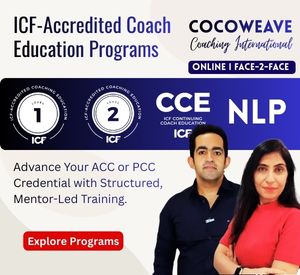Thump, thump, thump. Deep, rich and reverberating, the feeling can’t be pinpointed within the body. Thump, thump, thump. It resonates straight to the soul, calling upon something within — a visceral response. Thump, thump, thump. It draws each individual into the collective group as Kwame Scruggs, Ph.D. drums. Some close their eyes while others sway their bodies to his rhythm.
New research published in American Psychologist on June 10, 2021 provides an explanation for the comfort and social connection The Alchemy Method stirs when Kwame plays his drum during each coaching session. Jean Decety, the Irving B. Harris Distinguished Service Professor in Psychology and Psychiatry, and director of Child Neurosuite at the University of Chicago, says, “Music is a fundamental part of our evolution, allowing for unique expressions of social ties. It can strengthen cohesion and mutual trust between people by signaling shared values.”1 A group coaching style that forms a safe and supportive environment with mutual respect and trust between coach and clients, the Alchemy Method taps into an ancient knowing.
As the rhythm continues, the voice of my co-coach, Kwame, emerges with a myth, evoking the collective imagination. A parallel path into our humanity, myth nurtures our need for connection to others who share our experience of life. A Joesph Campbell quote comes to mind as the process unfolds: “Myths are the world’s dreams. They are archetypal dreams and deal with great human problems. Myths and dreams come from the same place. They come from realizations of some kind that then have to find expression in symbolic form.” The symbolism in myth bypasses individual self-defenses, an indicator that coaching remains on the intellectual level, so that clients may dive into their own subconscious Shadow Stories.
Kwame uses myth to draw his audience into the skin of the character, feeling the emotions and engaging in the struggle. It matters not the gender or the color. The felt experience is real. This is the power of myth to protect the coaching space. Myths transcend cultural limitations and bias when the story taps into archetypal energy.
From the perspective of the story, clients identify factors influencing their thinking and behavior without feeling judged. Interestingly, they shift their point of view in the story and whose skin they are in to explore life’s big questions. Unpacking myth with a sequence of questions encourage clients to share more about their experiences in the moment and evaluate their way of thinking, values, needs, wants and beliefs without provoking their resistance to change.
As Kwame masterfully navigates the group dynamics, the myriad of responses unveils the capacity for individuals to enter into myth where they are gleaning what they need. Carl Jung observed that in the chaos of life, myth provides the necessary order that the human psyche seeks.2 The allure of mythical tales exposes clients’ themes and patterns inviting a client-driven process to evaluate what is influencing their current thinking and behavior.
The unique ability of the Alchemy Method to hold the group coaching space inspires clients to listen to each other. The strands of drumming, myth, sequenced coaching questions and active listening evokes a sense of safety and freedom for clients to explore their experience freely and experiment with new ideas and outcomes through the characters and the context of the story. In the process, they challenge their own thinking. Dr. Scruggs uses an example from his award winning adolescent program. “We ask our youth to write down what they would do and perhaps, more importantly, why. We then go around the circle with everyone providing their rationale. This is when someone might change their response which shows the ability to listen and let go of one’s ego. The willingness to be transformed by another person’s deep thinking has a profound affect on others.”
This dynamic is just as compelling with adults. Mythologist and storyteller Michael Meade provides support with his statement, “The importance of being genuinely seen and heard can’t be overestimated. One of the ways that the soul grows is by being seen and recognized. If [someone] has never been recognized at the soul level, [they] won’t know who [they are] in times of crisis and will feel inauthentic more often than not. If [someone] has never been heard, [they] will have great difficulty listening to others.” Observing the group respond to the rhythm of the drums and the cadence of the storytelling, a new patience to listen to each other surfaces. Genuine compassion and empathy for each other gives the space for individuals to fully explore their thoughts and feelings and support their self-expression.
Thump, thump, thump. The rhythm pulses within the circle, pulling the individual into the collective. The myth invites the individual deeper into an ancient connection. The sequence of questions turns towards integrating new awareness and insight into their worldview and committing to action steps. The expression of growth and forward progress clients experience makes it easy to celebrate their success.
The Alchemy Method is taught exclusively through Mentor Agility by Dr. Kwame Scruggs and Dr. Julie Elledge, PCC, NBC-HWC, BCC.
1 https://neurosciencenews.com/music-collaberation-brain-18607/?fbclid=IwAR1W4upf4Y74rHMe0-m- a8h19oZHIhBjxc2CBvwiomTcExyyMNSXWYuX_Fw
2 Mark, Joshua, J. World History Encyclopedia, 31 October, 2018
© Mentor Agility 2021
Disclaimer
The views and opinions expressed in guest posts featured on this blog are those of the author and do not necessarily reflect the opinions and views of the International Coach Federation (ICF). The publication of a guest post on the ICF Blog does not equate to an ICF endorsement or guarantee of the products or services provided by the author.
Additionally, for the purpose of full disclosure and as a disclaimer of liability, this content was possibly generated using the assistance of an AI program. Its contents, either in whole or in part, have been reviewed and revised by a human. Nevertheless, the reader/user is responsible for verifying the information presented and should not rely upon this article or post as providing any specific professional advice or counsel. Its contents are provided “as is,” and ICF makes no representations or warranties as to its accuracy or completeness and to the fullest extent permitted by applicable law specifically disclaims any and all liability for any damages or injuries resulting from use of or reliance thereupon.
Authors
Post Type
Blog
Audience Type
Coach Educators, Experienced Coaches, External Coaches, ICF Chapter Leaders, Internal Coaches, New Coaches, Professional Coaches, Team and Group Coaches
Topic
Coaching Toolbox, Discover - Your Coaching Career
Related Posts
The Power of Active Listening in Meaningful Coaching: Why Active Listening is the Most Essential Coaching Competency
Of all the foundational coaching competencies identified by the International Coaching Federation…
Allyship in Action: Coaching as a Catalyst for Change
Allyship is often framed as a value or an intention. In practice,…
Grace Under Fire: Building Stress Resilience for Coaches and High Achievers
There’s a unique kind of pressure that lives at the intersection of…







